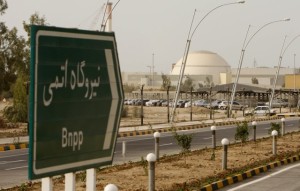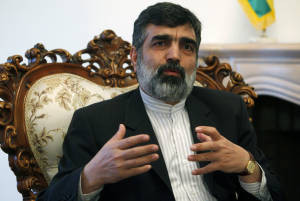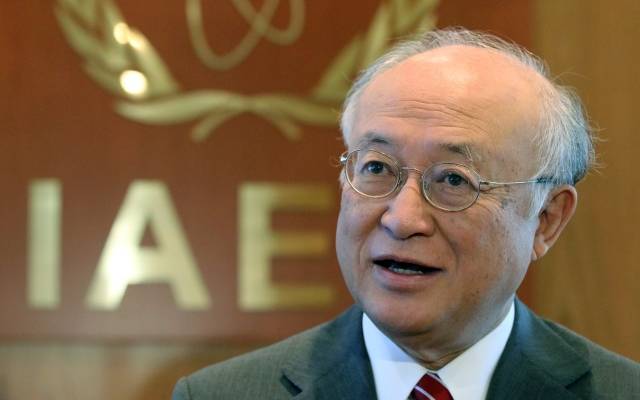

Iran’s Bushehr nuclear plant. (AP/Hasan Sarbakhshian)
Disagreements between Iran and the P5+1 on international atomic energy inspections are expected to play a central role in the Iranian nuclear negotiations just ahead of the June 30 deadline.
By: Lauren Calin, World Israel News
Iran denied claims by the International Atomic Energy Agency (IAEA) that it had agreed to inspections of its military sites. A sticking point in the nuclear negotiations with the P5+1 is whether or not Iran will give the IAEA access to military sites to ensure that no nuclear activity is being carried out there.
IAEA head Yukiya Amano indicated at a press conference that his agency would require years to verify that Iran’s nuclear program is peaceful. Until that happens, Iran has agreed under the Additional Protocol to provide updates on its nuclear activities every three months and to grant nuclear inspectors access to places where it suspects nuclear activity is taking place, including military sites.
“We will continue these activities for quite a prolonged period of time and then, after making our efforts, we come to the point when we can provide credible assurance that there is no indication of activities other than peaceful activities,” Amano said. “This is a long process and full cooperation from the country is needed.”
When asked how long this process was expected to take, he said, “It’s a matter of years at least. Not months. Not weeks. Years, or years and years.”


Behrouz Kamalvandi, deputy head of the Atomic Energy Organization of Iran. (AP/Juan Karita)
Behrouz Kamalvandi, deputy head of the Atomic Energy Organization of Iran (AEOI), responded to Amano’s comments on Iranian state TV by saying that Iran will never implement the Additional Protocol. “We have not implemented the Additional Protocol and are not implementing it at present either, so any mention of it in the IAEA secretary’s report would be quite pointless,” he said.
However, Kamalvandi noted several “positive” aspects of Amano’s report, namely, that it “generally confirms the peaceful nature of Iran’s activities” and that “it demands that addressing past issues should come to an end.”
Disagreements between Iran and the P5+1 on IAEA inspections are expected to play a central role in the Iranian nuclear negotiations. The US and France especially wish to tie the removing of sanctions to the results of UN inspections, whereas Iran is demanding that all sanctions be removed as soon as an agreement is signed. The P5+1 is also calling for surprise inspections of suspected nuclear sites, including military sites, while Iran wants advance notice and for military sites to be off-limits.

